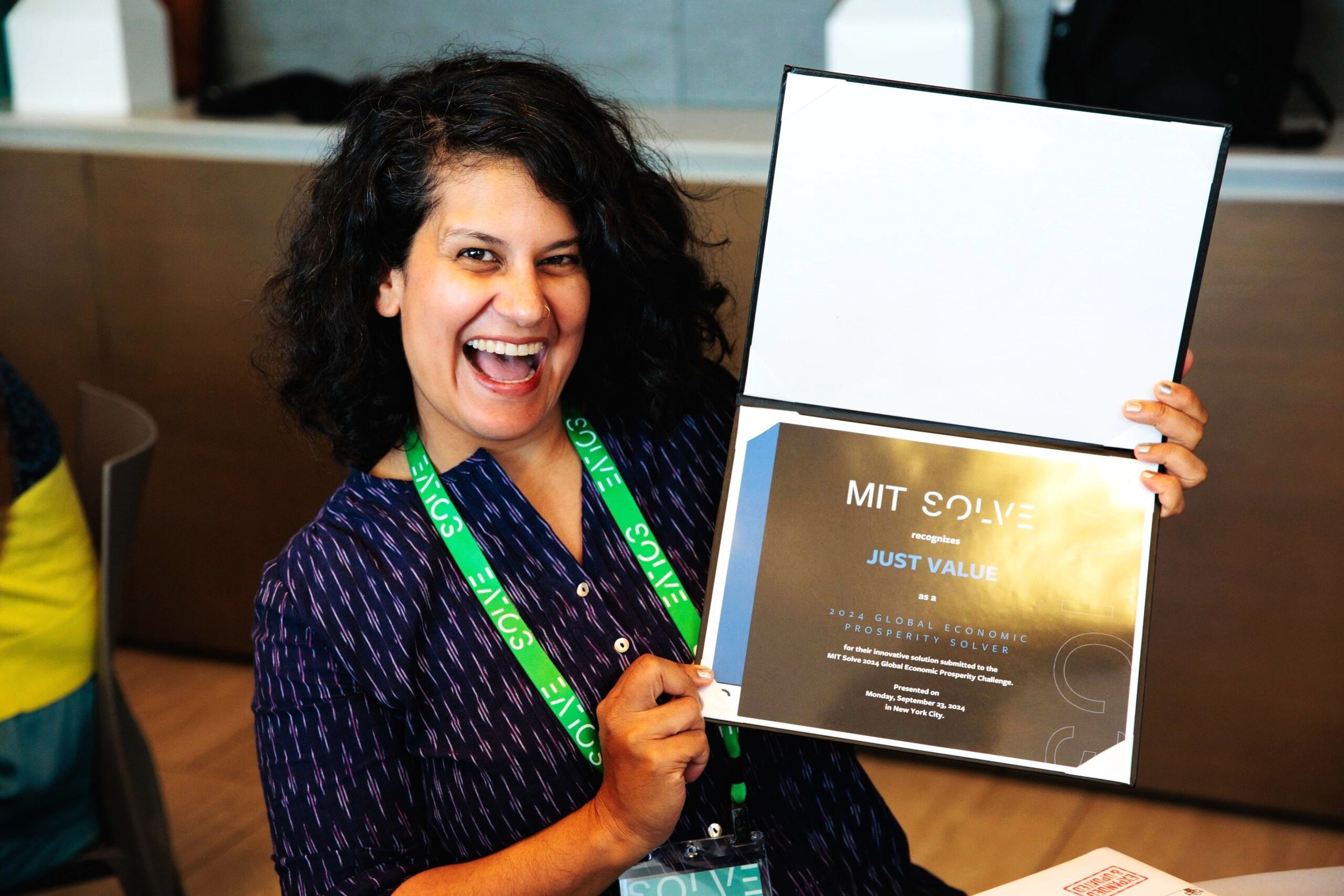Charu Singh and Just Value: Leveling the ground for homeownership
While homeownership is one of the most common ways to personal build wealth in America, the path is rife with inequities. Charu Singh saw the problem firsthand while growing up in a low-income community of color in Hoboken, N.J., where most residents, like her own family, were immigrants. Upward mobility meant becoming financially secure enough to leave the neighborhood.
Fast forward 25 years to today. Although Jersey City is gentrifying, no one Singh grew up with is still there to benefit. She and her husband now live in nearby Hoboken, where they own their home. To help others achieve that dream, she founded Just Value, a social impact fintech company whose mission is to correct the systemic undervaluation of homes that perpetuates the racial wealth gap in America.
According to Singh, undervaluation, also known as appraisal bias, is a discriminatory practice that has been perpetuated over many decades since “redlining” on government maps identified where Black people lived and thereby barred them from access to home lines. Today, the legacy is more subtle but no less harmful. When homes are undervalued because of the race or ethnicity of the people who live there, those potential buyers have a problem borrowing enough to enter the market because banks base loan amounts on appraised value. And homeowners may be unable to borrow against their home equity to make improvements that raise the value of their homes. This prevents individuals from accumulating wealth and hurts local economies.
“Just Value is not only a restorative solution for people and communities where homes are under-appraised,” Singh said. “It is reparative to me personally. The question I asked myself was, how can I help people and communities across the U.S. build resiliency and economic stability so they can achieve their dreams where they are? By removing the impact of race on home values, we can create a fairer market for homes and communities of color.”
Singh’s unusual background has set her up perfectly for Just Value to succeed. She earned her bachelor’s degree in political science and international relations from McGill University in Montreal, and master’s degrees in real estate and city planning from Massachusetts Institute of Technology. She worked in urban farming for AmeriCorps and served in the Peace Corps in Ecuador. Later, at the New York City Economic Development Corporation, she built public-private partnerships to bring investment to neighborhoods that were lagging behind in terms of economic value and led complex financial, market, and zoning analyses. She then spent over a decade at a private equity firm that invests in emerging Asia, where she was challenged to prove value in neighborhoods and in countries where, she said, “value looks different from what investors were accustomed to.”
Nearly two years after starting Just Value, Singh is beginning to see the return on her own investment. Her first big break was a grant of $250,000 from the Robert Wood Johnson Foundation. As part of the MIT Solve challenge, Just Value received the $50,000 Morgridge Family Foundation AI Innovation Prize for being a “solution that uses AI to boldly spark change through innovation, disruption, and transformation.”
About the role of AI in Just Value’s model, Singh said, “None of this would be possible or scalable without AI. But the first thing we have to do is repair the datasets that are heavily skewed towards white-generated data. While most valuation models seek to serve the market overall, we are choosing to focus specifically on marginalized neighborhoods so we can find methods that reduce disparity in neighborhoods that suffer the most inaccuracy in human and machine-led valuations.”
So far, Singh is piloting the Just Value model in Mattapan, Mass., a majority-black neighborhood near Boston. She employs just one person, a data scientist, and takes no salary. By the end of next year, she hopes to operationalize the model and have active pilots in several other cities. She’s working with lenders to develop a loan product that helps people borrow the money they need to build wealth through homeownership. But, as she well knows, changing the real estate calculus is a major undertaking that will require many partners and considerable resources.
Thanks to the recent infusion of capital, Singh is optimistic. She said, “Winning financial support is incredibly meaningful to us because it means there are people who understand what we are trying to do and recognize that there’s a pathway for impact and scale in affecting people’s lives.”



